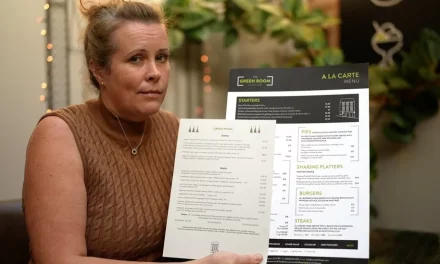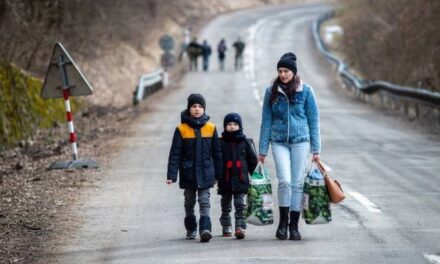Train services are being widely disrupted on Saturday as drivers from seven operators walk out over pay.
A 24-hour strike by about 5,000 members of the Aslef union is affecting lines across England – including Southeastern and West Midlands Trains.
Travel to the first games of the season for most English Football League clubs, the Commonwealth Games in Birmingham, and a Lady Gaga gig will be impacted.
It adds to a summer of misery for passengers after a series of walkouts.
The latest strike is also affecting Arriva Rail London – which operates the London Overground – Greater Anglia, Great Western, Hull Trains, and Heathrow Express.
No trains will run on Southeastern, while operators including Great Western Railway – which runs services between England and Wales – and LNER will have severely-reduced services.
The disruption to London Overground and Greater Anglia will affect travel to and from Lada Gaga’s Chromatica Ball in Tottenham.
There will also be no Overground services into the early hours of Sunday.
West Midlands Trains has said it will only operate a “special shuttle” between Birmingham New Street and Birmingham International as thousands attend the Commonwealth Games in the city.
Passengers are advised to check the latest information before they travel, and allow extra time for their journey.
Trains run by operators not involved in the strike are likely to be busy.
Further strikes are planned in August by Aslef and the RMT union in the row over pay, jobs and conditions.
Writing in The Times, Transport Secretary Grant Shapps accused “militant union leaders” of bring the country “to a standstill” – and labelled them the “aristocrats of the public sector”.
He said efficiencies were needed to fund pay rises in the industry and accused Aslef of “dragging its feet in negotiations”, but the union’s general secretary Mick Whelan said Mr Shapps was “lying”.
Speaking on Times Radio on Saturday, he said: “We’re not dragging our feet in negotiations, we negotiate with 14 private companies, we do not work for the government or the DfT (Department for Transport).”
‘Unnecessary stress’
Mark and Fiona are a couple from Winchester who are due to travel to a wedding on Saturday.
“This will seriously affect our plans for travelling to a wedding in Kent. Now we have no choice but to drive, and there will be so much traffic,” Fiona told the BBC.
“It’s causing me a lot of anxiety and unnecessary stress,” she added.
Her husband Mark said that three people due to sit on their table at the wedding cannot come as there are no trains for them – and they do not drive.
“These are the groom’s work colleagues. It’s really sad and makes me angry,” said Mark. “It’s unfair that the wedding plans are being spoiled at the last minute.”
Presentational grey line
Mr Whelan told the BBC the union’s members had not had a pay rise for three years and wanted the “ability to negotiate”.
He said: “The people we work for have been making hundreds of millions of pounds and giving money to their shareholders.”
Speaking to Radio 4’s Today programme from a picket line, he said the government had prevented rail operators from offering union members a pay increase of more than 2%.
Steve Montgomery, chairman of the Rail Delivery Group which represents rail operators, said bosses were “really disappointed that the Aslef leadership has decided to impose yet more uncertainty and disruption for passengers and businesses”.
“Further strikes will see our people out of pocket and mean less money to fund a pay rise, so we urge the Aslef leadership to resume talks,” he added.
Sam Tarry, the former shadow transport minister who was sacked from Labour’s frontbench this week, came out to support strikers again at a picket line at Paddington station in London on Saturday.
Left-wing supporters of Mr Tarry say he was fired for joining striking rail workers on a picket line at Euston station on Wednesday, where he gave media interviews.
Labour leader Sir Keir Starmer, who previously banned frontbenchers from joining picket lines, said Mr Tarry was sacked doing interviews “without permission” and making up policy “on the hoof”.
Passengers also faced disruption on Wednesday due to that rail strike.
Around 40,000 RMT union members at Network Rail and 14 other train companies walked out over pay, job cuts and changes to terms and conditions.
To read the original article please click: https://www.bbc.co.uk/news/business-62351226




